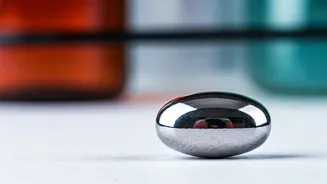Understanding Iron's Role
Iron is crucial for many bodily functions, most notably the creation of hemoglobin, a protein in red blood cells that transports oxygen throughout the body.
Without adequate iron, the body struggles to produce enough hemoglobin, resulting in insufficient oxygen delivery to cells and tissues. This lack of oxygen is a primary driver of fatigue. Iron also plays a role in energy production, immune function, and cognitive performance. Therefore, a deficiency can manifest in various ways beyond tiredness, including weakness, difficulty concentrating, and increased susceptibility to infections. The severity of symptoms can vary based on the degree of deficiency and the individual’s overall health. Recognizing the importance of iron is the first step toward addressing potential deficiencies and restoring vitality.
Recognizing Deficiency Signs
Identifying iron deficiency involves recognizing its common symptoms. Fatigue is the most prevalent sign, often accompanied by weakness and a general sense of being unwell. Other indicators include pale skin, headaches, dizziness, and shortness of breath, especially during exertion. Brittle nails, hair loss, and a sore or inflamed tongue can also indicate low iron levels. Some individuals might experience cravings for non-food items like ice (pica). These symptoms arise because the body tries to conserve its limited iron resources, prioritizing essential functions over less critical ones. If you experience these symptoms, consulting a healthcare professional is crucial for accurate diagnosis. They can conduct blood tests, such as a complete blood count (CBC) and iron studies, to confirm an iron deficiency and determine its severity.
Dietary Iron Sources
Increasing iron intake through dietary adjustments is a foundational step in addressing iron deficiency. There are two primary forms of dietary iron: heme and non-heme. Heme iron is found in animal products like red meat, poultry, and fish, and is more easily absorbed by the body. Non-heme iron, found in plant-based foods such as spinach, lentils, beans, and fortified cereals, requires a bit more effort for optimal absorption. To maximize iron absorption from plant sources, combine them with foods rich in vitamin C, like citrus fruits, bell peppers, and strawberries. Vitamin C enhances the body's ability to absorb non-heme iron. Conversely, avoid consuming iron-rich foods with substances that inhibit iron absorption, such as tannins in tea and coffee, and calcium-rich foods at the same time.
Supplementation Strategies
In certain cases, dietary changes alone might not be sufficient to correct iron deficiency, and supplementation becomes necessary. When considering iron supplements, consult a doctor to determine the appropriate dosage and type. Common iron supplements include ferrous sulfate, ferrous gluconate, and ferrous fumarate. The body absorbs these supplements most effectively when taken on an empty stomach, though this might cause some gastrointestinal discomfort for some people. Taking the supplement with vitamin C can enhance absorption. It's crucial to follow the recommended dosage to avoid side effects like constipation, nausea, or stomach upset. Iron supplements can also interact with certain medications, so discuss any potential interactions with your healthcare provider. Iron supplementation should be a part of a broader strategy, which includes regular monitoring of iron levels by a healthcare professional.
Lifestyle Considerations
Alongside dietary and supplemental strategies, several lifestyle factors can influence iron levels and overall well-being. Regular exercise can boost energy levels and improve oxygen circulation, which can combat the fatigue associated with iron deficiency. Stress management is also important, as chronic stress can deplete iron stores. Prioritizing quality sleep and creating a relaxing bedtime routine can assist in improving sleep quality, which is often disturbed by low iron. Certain health conditions, such as heavy menstrual bleeding, gastrointestinal disorders, or conditions that interfere with nutrient absorption, can contribute to iron deficiency. Addressing any underlying health issues and seeking professional medical guidance when necessary are critical. Making sustainable lifestyle changes supports the effective management of iron deficiency and improves overall health.












